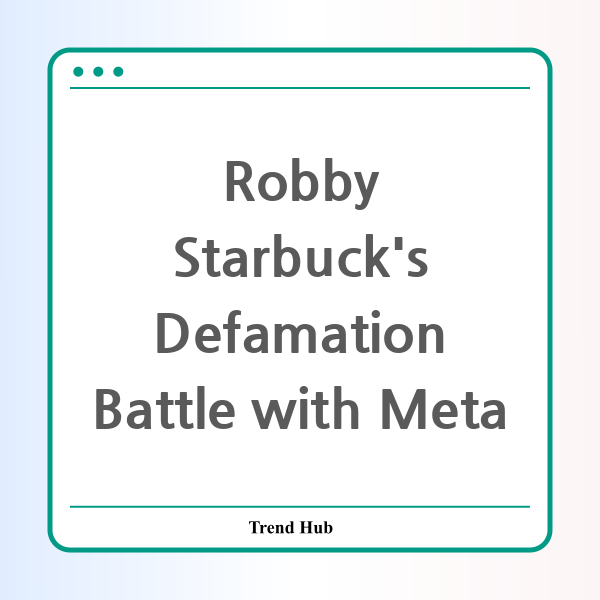* This website participates in the Amazon Affiliate Program and earns from qualifying purchases.

In today’s digital age, the collision between social media platforms and individual reputations has become a significant theme. The recent controversy surrounding conservative activist and media figure Robby Starbuck exemplifies this complex interplay. After filing a defamation lawsuit against tech giant Meta, Starbuck's case raises important questions about the implications of AI-generated content and the responsibilities of social media platforms.
Starbuck, known for his vocal opposition to certain corporate diversity initiatives and for his rapid rise in right-wing media, alleges that Meta's AI chatbot disseminated false information about him, linking him to the January 6th Capitol riot and the QAnon conspiracy theory—claims he firmly denies. This has prompted discussions about the accuracy and accountability of AI technologies embedded in our social media interactions.
On May 2, 2025, Starbuck's legal battle commenced with a high-profile appearance on a popular media show. He expressed his concerns over Meta’s actions, stating that the company’s AI had severely harmed his reputation and exposed him and his family to potential threats. The lawsuit seeks $5 million in damages along with changes to Meta’s AI systems to prevent similar occurrences in the future.
In a notable turn, Joel Kaplan, Meta’s Chief Global Affairs Officer, publicly apologized to Starbuck soon after the lawsuit was filed. He acknowledged the problem and expressed his commitment to investigate how this misinformation occurred, stating, "This is unacceptable. This is clearly not how our AI should operate." Kaplan’s rapid response is unusual for a corporate executive, particularly one from a company embroiled in a lawsuit, indicating the gravity of the situation.
However, Starbuck remains unsatisfied with Kaplan’s apology, emphasizing that he requires a public acknowledgment from Meta’s CEO, Mark Zuckerberg, alongside substantial reform to the AI systems that produced the defamatory statements. He argues that this situation jeopardizes not only his family’s safety but also the integrity of individuals with varying political beliefs who might be similarly affected by AI-driven misinformation.
As the AI landscape continues to evolve, the challenges and potential for misuse remain profound. Starbuck's case underscores the emerging legal questions surrounding AI-generated content and the extent to which companies like Meta can be held accountable for harm caused by their technologies. While the Communications Decency Act offers certain protections to internet companies, the rapid advancement of AI may prompt a reevaluation of these legal frameworks.
In conclusion, the Robby Starbuck vs. Meta case presents a pivotal moment in understanding the intertwining of AI, free speech, and individual reputations in the age of technology. It serves as a reminder of the necessity for accountability and ethical standards in the deployment of artificial intelligence in our daily lives.
* This website participates in the Amazon Affiliate Program and earns from qualifying purchases.